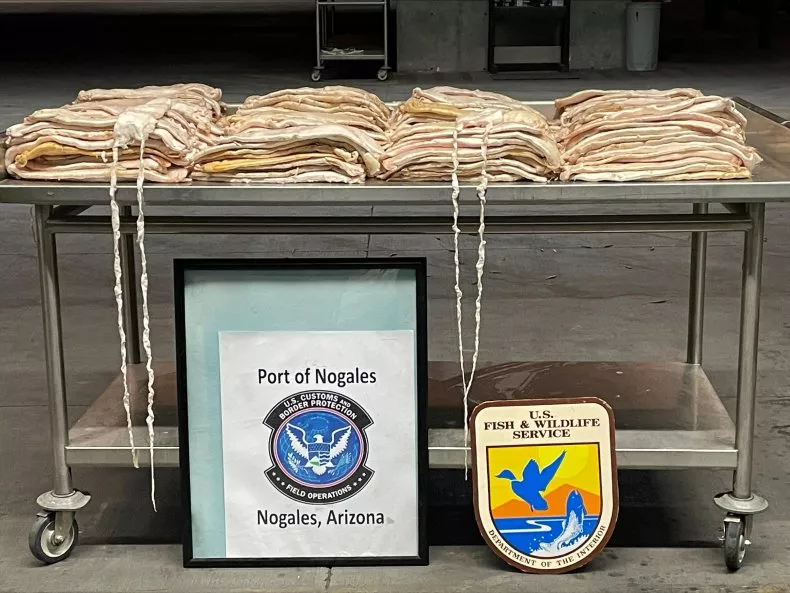Customs and Border Protection (CBP) officers in Arizona have seized a haul of endangered fish organs worth $2.7 million after they were found hidden in a commercial shipment of frozen fish fillets.
Following DNA testing by the U.S. Fish and Wildlife Service it became clear that the swim bladders belonged to an endangered fish species, Totoaba macdonaldi.
“This seizure is thought to be the second-largest seizure of its kind in the U.S. and the largest Totoaba seizure in Arizona, to date,” the CBP said in a press release on Monday.
The 270 totoaba swim bladders, weighing more than 240 pounds, were first discovered on April 13 at the Mariposa trade facility.
Totoaba fish can be found in the Gulf of California in Mexico. They are a fairly large species, growing up to 6.5 feet in length and weighing up to 220 pounds, according to estimates by the National Oceanic and Atmospheric Administration.
The swim bladder of the totoaba—that is, the organ that helps it stay afloat—is highly prized in traditional Chinese medicine and as a cultural Asian delicacy. Totoaba is valued for its high collagen content, and some believe that its swim bladders can boost fertility and improve circulation and skin vitality, the Department of Justice reports.
However, the species has been protected under the U.S. Endangered Species Act since 1979, making it illegal to possess, transport or sell totoaba. Trade is also prohibited globally under the Convention on International Trade in Endangered Species of Wild Fauna and Flora because of its endangered status. As a result, the sought-after species has earned itself the nickname “cocaine of the sea,” according to the Porpoise Conservation Society.
Source: newsweek


